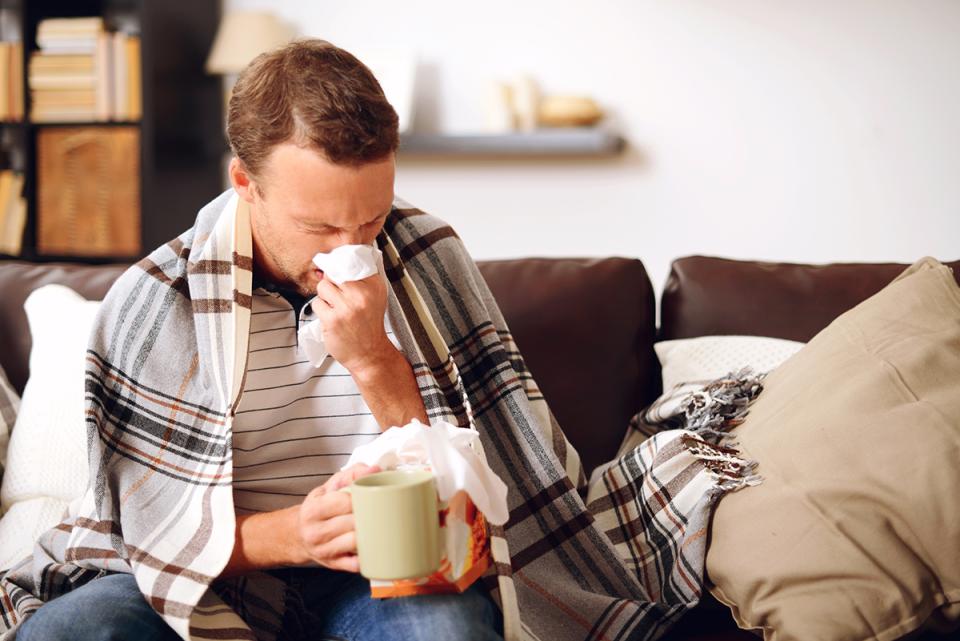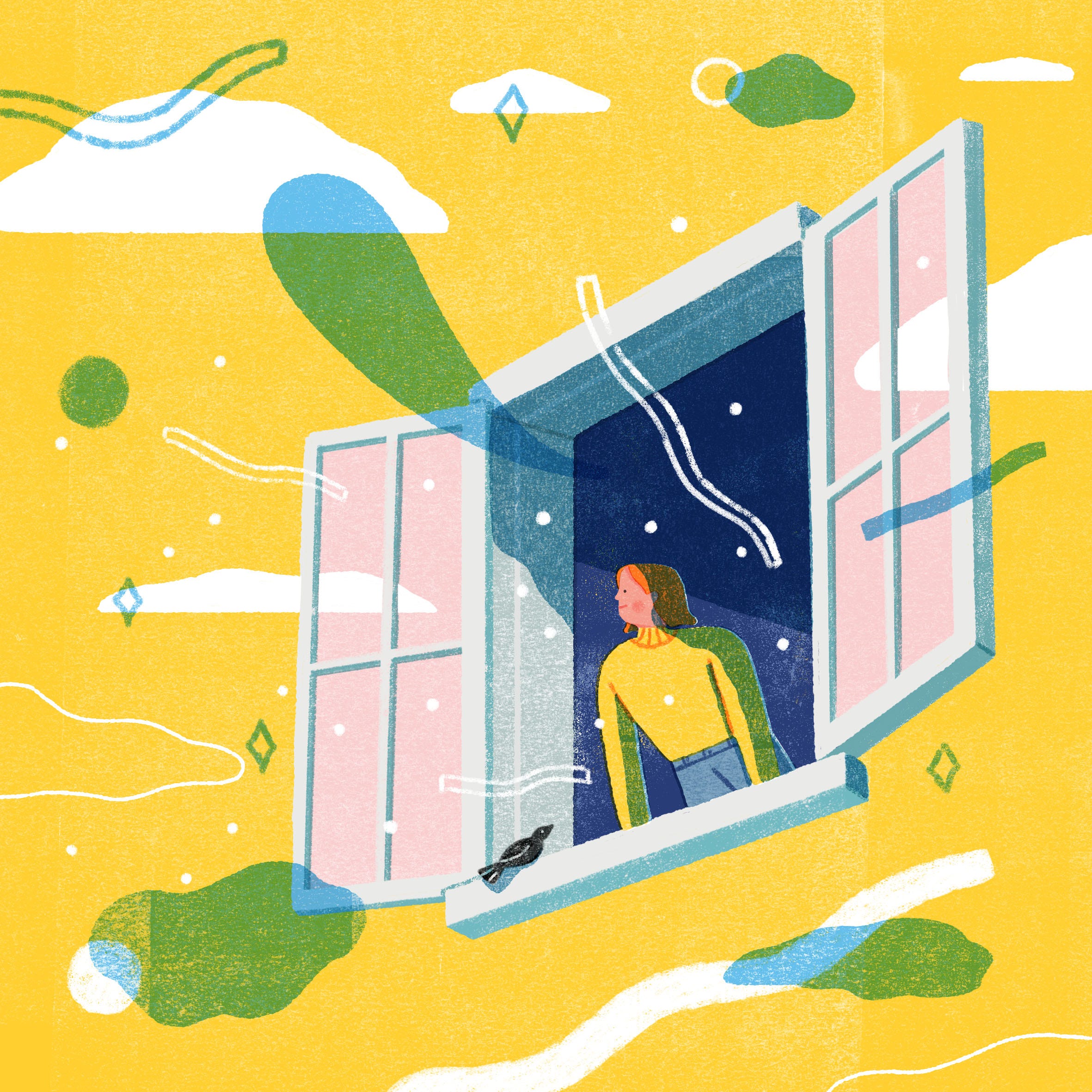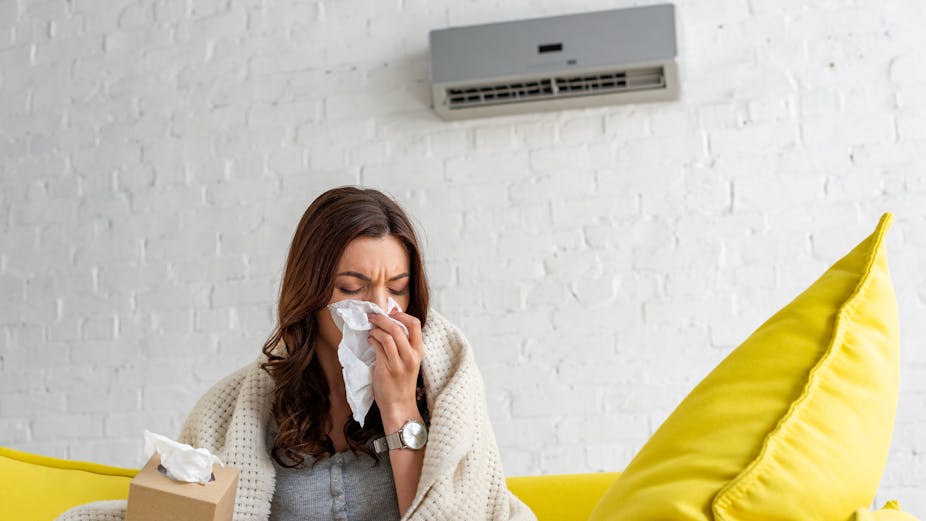Have you ever wondered if stepping outside for some fresh air can actually help when you’re feeling sick? You might have heard different opinions, leaving you unsure about what’s best for your body.
Fresh air feels refreshing, but does it really make a difference when you’re under the weather? You’ll discover the surprising effects fresh air can have on your recovery and how to use it wisely to feel better faster. Keep reading—you’ll want to know the simple steps that could change the way you heal.

Credit: theconversation.com
Benefits Of Fresh Air During Illness
Fresh air can play a surprising role in your recovery when you’re sick. It’s not just about feeling better temporarily; the benefits go deeper and can actively support your healing process. Understanding these advantages can help you decide when and how to step outside safely during illness.
Boosting Immune Response
Fresh air helps increase oxygen levels in your blood, which supports your immune system’s ability to fight infections more effectively. When you breathe in clean air, your body gets a natural boost to produce more white blood cells. These cells are essential for identifying and destroying harmful viruses and bacteria.
Have you noticed how a quick walk outside sometimes makes you feel a bit stronger? That’s your immune system getting a subtle push from the oxygen-rich environment.
Improving Respiratory Function
Illnesses often come with congestion and difficulty breathing. Fresh air can help clear your nasal passages and lungs, making it easier to breathe. Cooler, cleaner air reduces irritation in your respiratory tract, which can lower coughing and wheezing.
Spending time in a well-ventilated space or stepping outside can also prevent the buildup of indoor allergens and germs, which might worsen your symptoms. Could fresh air be the simple relief your lungs need?
Enhancing Mood And Mental Health
Being sick often drains your energy and dims your mood. Fresh air exposure encourages the release of endorphins, the body’s natural mood lifters, helping you feel more positive. Even a few minutes outside can reduce feelings of anxiety and stress that often accompany illness.
Think about how a short breath of fresh air lifted your spirits during a tough day. This small act can make a big difference in how you cope mentally when you’re not feeling well.

Credit: www.honorhealth.com
How Fresh Air Affects Common Symptoms
Fresh air plays a key role in easing symptoms during sickness. It helps the body breathe better and feel calmer. Breathing clean air can improve how you feel physically and mentally. Let’s explore how fresh air can ease common symptoms.
Relieving Congestion
Fresh air can help clear nasal passages. It reduces stuffiness by loosening mucus. Cooler, clean air soothes irritated airways. This makes breathing easier and more comfortable. Avoid dusty or polluted areas to get the best relief.
Reducing Fatigue
Fresh air boosts oxygen levels in the body. More oxygen helps muscles and brain work better. This can reduce feelings of tiredness. A short walk outside can increase energy. Stay active, but rest as needed to recover well.
Alleviating Headaches
Stale, indoor air can worsen headaches. Fresh air lowers indoor pollutants that trigger pain. Breathing deeply in open air relaxes muscles. This helps reduce headache intensity. Find a quiet, fresh place to sit and breathe slowly.
When To Stay Indoors Despite Fresh Air Benefits
Fresh air often feels refreshing and can help improve breathing and mood. Still, there are times when staying indoors is safer and better for recovery. Knowing when to avoid fresh air can protect your health and prevent worsening symptoms.
Severe Symptoms And Contagious Illness
Severe symptoms like high fever, extreme fatigue, or difficulty breathing require rest indoors. Going outside might drain your energy further. Contagious illnesses such as the flu or COVID-19 need isolation to stop spreading germs. Staying indoors helps protect others and lets your body heal quietly.
Environmental Factors To Consider
Pollution, extreme weather, or strong winds can harm your recovery. Hot or cold temperatures can stress your body when it is weak. Smoke or heavy traffic nearby may worsen coughing and breathing problems. Choosing indoor air control helps keep comfort and safety.
Avoiding Allergens And Pollutants
Outdoor allergens like pollen and dust can irritate your nose and throat. Pollution from cars and factories can trigger coughing or asthma attacks. Staying inside with filtered air reduces exposure to these irritants. Use air purifiers and keep windows closed on bad air days.
Tips For Safely Getting Fresh Air While Sick
Fresh air can help ease breathing and improve mood during illness. Choose a quiet, clean outdoor spot and avoid crowded places to stay safe. Limit exposure time and dress warmly to prevent chills.
When feeling under the weather, fresh air can be beneficial. It can help clear your mind and improve your mood. But stepping outside requires caution. You must ensure that your outdoor time aids recovery, not hinders it. Here are some tips for safely enjoying fresh air while sick.Choosing The Right Time And Place
Select a time when the weather is mild. Avoid extreme temperatures or harsh winds. Early morning or late afternoon can be ideal. Find a quiet, pollution-free place. Your backyard or a nearby park might work well. Ensure the area is not crowded. This reduces the risk of spreading germs.Dressing Appropriately
Wear layers to regulate body temperature. Keep your chest and neck covered. Use a hat and gloves if it’s chilly. Choose breathable fabrics. Comfort is key when you’re unwell. Avoid getting too cold or too hot. This can worsen your symptoms.Balancing Rest And Activity
Limit outdoor time to short periods. Ten to fifteen minutes is often enough. Listen to your body. Rest if you feel tired. Light activity is fine, but avoid strenuous exercise. Walking slowly can help you breathe fresh air. It should not drain your energy. Your focus should remain on healing.Scientific Evidence Supporting Fresh Air Therapy
Fresh air therapy has been gaining attention for its potential health benefits, especially when you are sick. Science offers interesting insights into how stepping outside and breathing clean air might support your recovery. Let’s look at some research that backs these claims and see what fresh air can really do for your body and mind.
Studies On Respiratory Health
Research shows that fresh air can help clear the lungs and reduce symptoms of respiratory illnesses. A study published in the Journal of Thoracic Diseasefound that patients with chronic respiratory conditions who spent time outdoors reported easier breathing and less coughing.
Clean, well-ventilated air reduces exposure to indoor pollutants and viruses. This can lower the risk of infections worsening or spreading.
Research On Immune System Benefits
Fresh air exposure can also boost your immune system. Studies have found that outdoor air contains higher levels of negative ions, which may increase the activity of immune cells like natural killer cells.
Spending time outside has been linked to higher vitamin D levels due to sunlight, which plays a crucial role in immune function. Have you noticed feeling stronger after a day in the sun? Science might explain why.
Psychological Effects Of Outdoor Exposure
Fresh air isn’t just good for your body—it can also improve your mood and reduce stress. Research in environmental psychology points out that even brief outdoor exposure lowers cortisol, a stress hormone that can hinder recovery.
Feeling anxious or down while sick can slow healing. Getting outside and breathing fresh air can lift your spirits, helping you feel better mentally and physically.

Credit: elemental.medium.com
Frequently Asked Questions
Is Fresh Air Beneficial When Feeling Sick?
Yes, fresh air can help improve oxygen flow and boost mood. It reduces indoor germs and may ease breathing, promoting faster recovery.
How Long Should I Stay Outside When Sick?
Spending 15 to 30 minutes outside daily is usually enough. Avoid extreme weather and dress comfortably to prevent worsening symptoms.
Can Fresh Air Worsen Respiratory Illnesses?
Fresh air generally helps, but cold or polluted air might irritate lungs. Use caution if you have asthma or severe respiratory conditions.
Should Sick People Open Windows For Ventilation?
Yes, opening windows improves air circulation and reduces indoor viruses. Proper ventilation helps create a healthier environment for recovery.
Conclusion
Fresh air can help you feel better when you are sick. It brings in oxygen that helps your body heal. A short walk outside or opening a window can lift your mood. Avoid cold or polluted air, as it might make you worse.
Always listen to your body and rest when needed. Clean air supports your recovery but does not replace medicine. Stay safe and breathe fresh air wisely to feel stronger each day.





